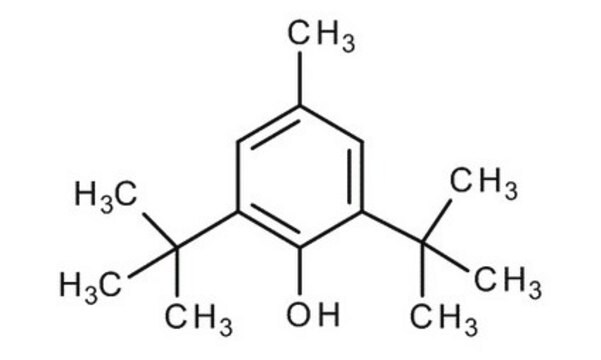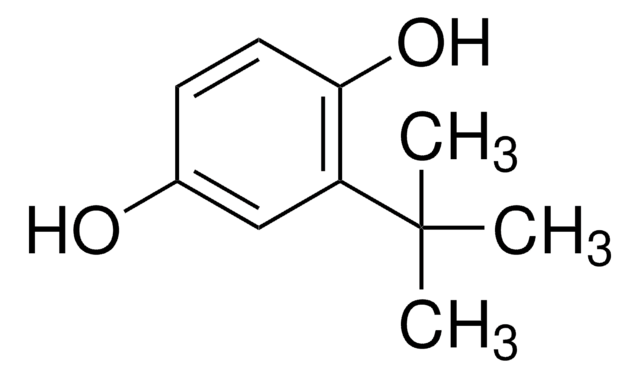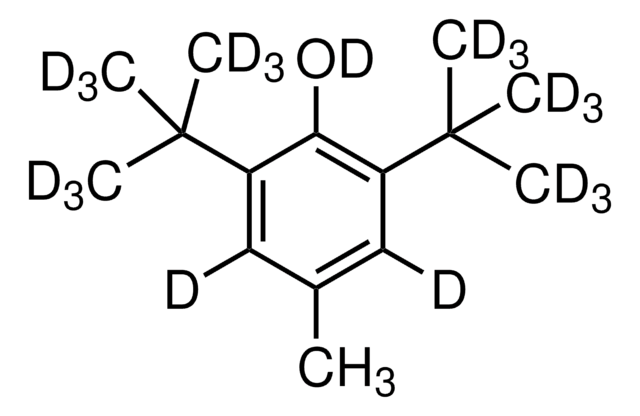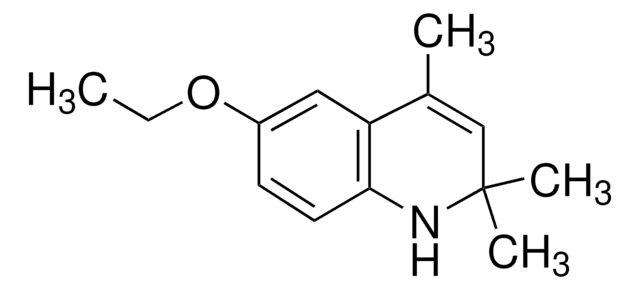47168
3,5-Di-tert-butyl-4-hydroxytoluene
analytical standard
Synonym(s):
3,5-Di-tert-butyl-4-hydroxytoluene, E321
About This Item
Recommended Products
grade
analytical standard
Quality Level
CofA
current certificate can be downloaded
packaging
pkg of 500 mg
technique(s)
HPLC: suitable
gas chromatography (GC): suitable
application(s)
cleaning products
cosmetics
food and beverages
personal care
format
neat
storage temp.
room temp
SMILES string
Cc1cc(c(O)c(c1)C(C)(C)C)C(C)(C)C
InChI
1S/C15H24O/c1-10-8-11(14(2,3)4)13(16)12(9-10)15(5,6)7/h8-9,16H,1-7H3
InChI key
NLZUEZXRPGMBCV-UHFFFAOYSA-N
Gene Information
human ... CAPN1(823)
rat ... Capn1(29153) , Nos1(24598)
General description
Application
Recommended products
Signal Word
Warning
Hazard Statements
Precautionary Statements
Hazard Classifications
Aquatic Acute 1 - Aquatic Chronic 1
Storage Class Code
11 - Combustible Solids
WGK
WGK 2
Flash Point(F)
260.6 °F - open cup
Flash Point(C)
127 °C - open cup
Personal Protective Equipment
Choose from one of the most recent versions:
Already Own This Product?
Find documentation for the products that you have recently purchased in the Document Library.
Customers Also Viewed
Protocols
Phenolic Antioxidants are added to polyers for controlling their degradation process. Irgafos 168, Irganox 1010, Ethanox 330, Irganox 1076, BHT, and Irgafos 168 are often used as antioxidants to prevent the degradation of polypropylene polymer formulations. This HPLC method is for the quantitation of an additive or mix of additives in a polymeric material.
Our team of scientists has experience in all areas of research including Life Science, Material Science, Chemical Synthesis, Chromatography, Analytical and many others.
Contact Technical Service







